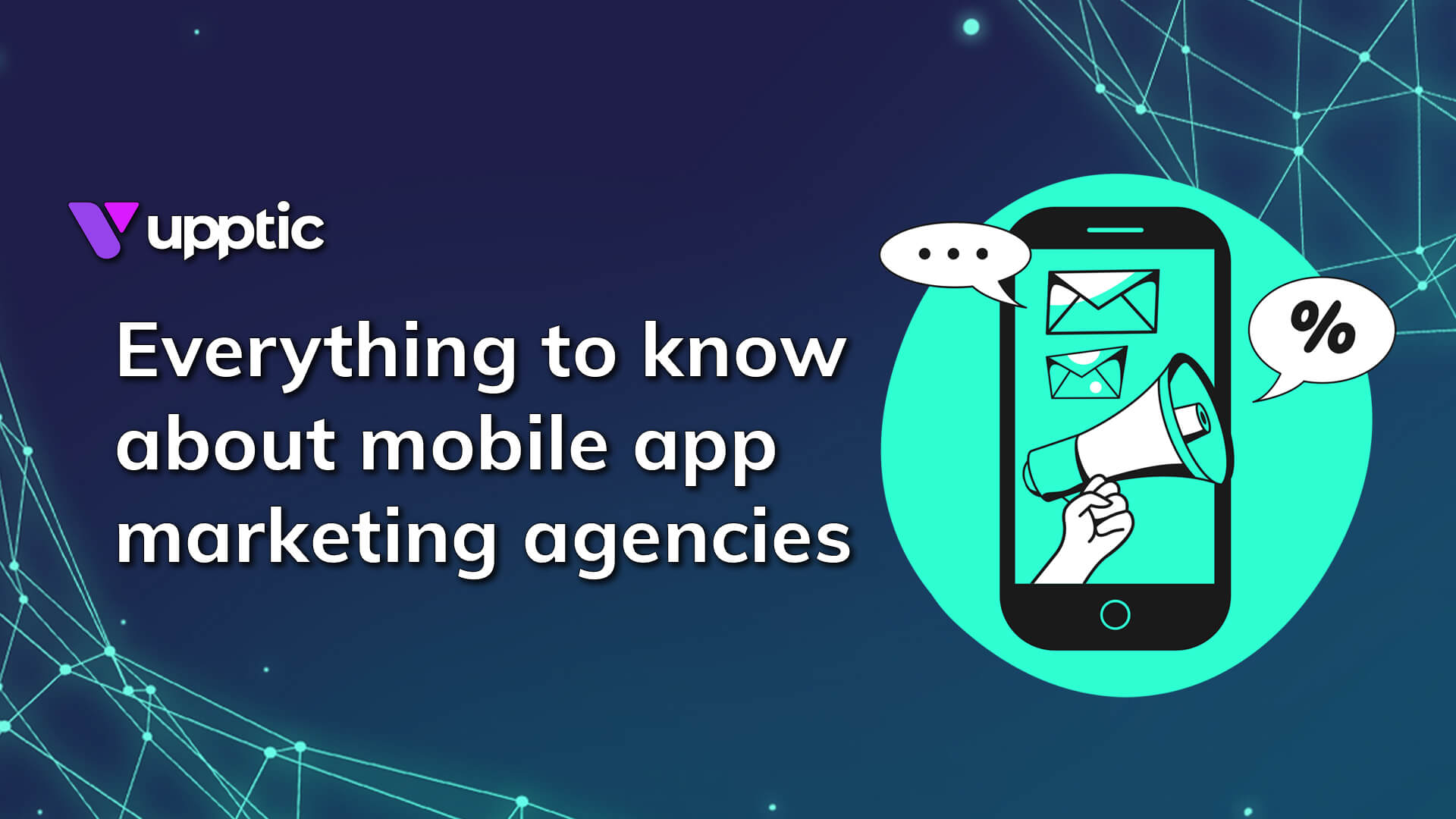The mobile app industry is rapidly evolving, and with it comes the need for specialized mobile app marketing agencies to help businesses stay ahead of the competition. Just as agencies have helped different industries and sectors find new customers, mobile app marketers are focused on helping multiple clients – such as game studios and app publishers – build their brands and their businesses.
This article will cover a few key topics, including mobile app marketing, the role of mobile app marketing agencies and mobile marketing services, and the best strategies related to acquiring and retaining users. You can also jump to a section with our chapter selector:
- What is Mobile App Marketing?
- Mobile Marketing Strategies: Acquisition
- Mobile Marketing Strategies: Retention
- Where do mobile app marketing agencies fit in?
- Recommended mobile app marketing agencies
What is Mobile App Marketing?
Mobile app marketing is an umbrella term that refers to the various strategies used to promote an app and bring in new users. Its purpose is to help businesses maximize their return on investment (ROI) in mobile app development. To accomplish this, mobile app marketing companies focus on two core components: acquisition and retention.
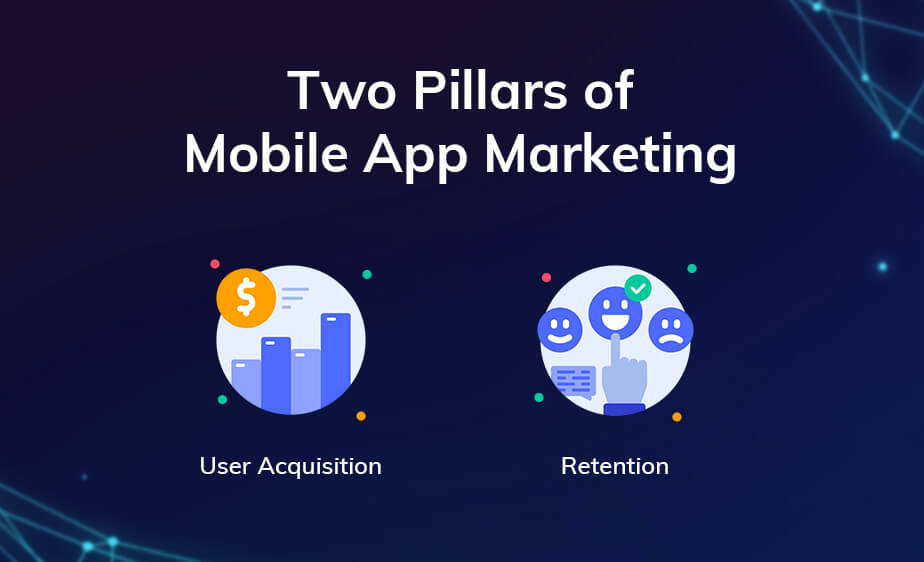
Acquisition
For acquisition, mobile app marketing companies develop strategies to get the highest number of downloads for an app at the lowest possible cost. This includes tactics such as running ads on Google, Facebook, and other popular platforms, leveraging influencers, or creating organic content on social media platforms and online communities.
Retention
On the other hand, retention involves keeping current users, or those who have previously interacted with an app, engaged. This may include update notifications, reconnecting with users who have churned, responding to questions and comments on social media, and taking an active part in online communities.
By successfully implementing both acquisition and retention strategies in tandem with each other, mobile app marketing companies can help businesses increase ROI and improve their overall performance in the market.
Mobile Marketing Strategies: Acquisition
User acquisition strategies can be largely broken down into paid channels and organic channels. While the goal is to lean on organic user acquisition as much as possible, both paid and organic channels are important to a healthy mobile app marketing strategy.
Paid Channels
Paid marketing channels involve paying to place ads on various platforms. When done properly, it can be an effective way to promote mobile apps worldwide and generate downloads.
An advantage of paid advertising is its ability to target users based on specific criteria, such as their location, age, gender and interests — allowing for more tailored messages and increased conversions. Additionally, the cost of each ad placement can be calculated ahead of time for better budgeting.
When running paid marketing campaigns, it’s important to track results in order to adjust strategies. This includes measuring metrics such as impressions (the number of times an ad is seen by users), click-through rates (the percentage of people who click on an ad after seeing it) and conversions (the number of people who download an app after clicking on an ad).
By analyzing this data over time, in conjunction with market research, marketers at a mobile app marketing company or agency can ensure that their campaigns are hitting the right audiences and optimize them for maximum effectiveness.
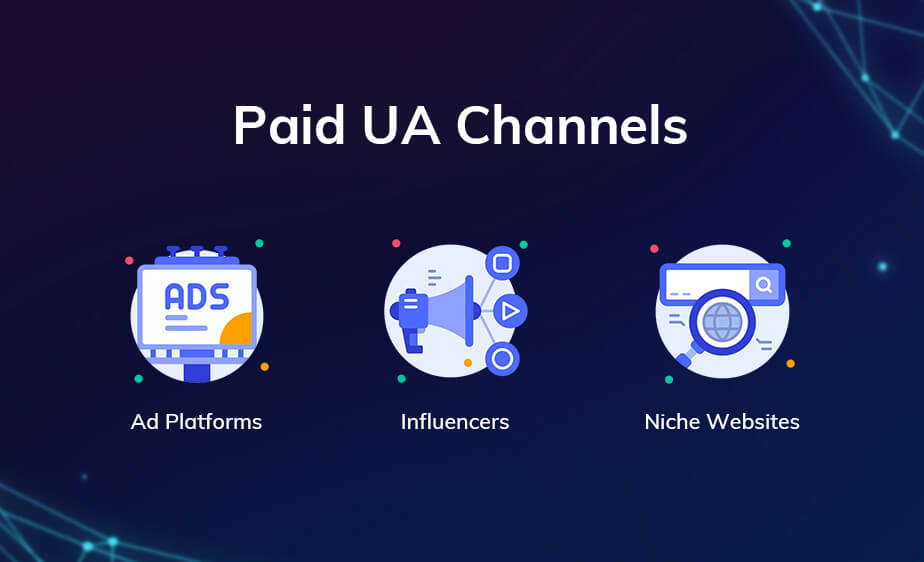
Ad Platforms
Ad platforms are a key component of mobile and app marketing strategies and can help businesses reach the right audiences with their advertising campaigns. Ad platforms are digital marketplaces where advertisers can buy advertising space from publishers to display their ads.
Popular ad platforms such as Google Ads, Apple Search Ads, Meta Ads, and Twitter Ads provide tools to target audiences based on criteria such as location, demographics, and interests. For example, Facebook allows advertisers to display ads based on age, gender, location, interests and more – making it easier for marketers to reach potential customers in more relevant ways.
Ads and paid promotions in Android’s Google Play store and Apple’s App Store are a great way to acquire new users, as they offer businesses the opportunity to reach out to specific target audiences on platforms they already use. With app store ads, businesses can select and customize the visuals, text, format, and timing of their advertisements. Additionally, most app stores provide analytics tools that enable businesses to track the performance of their campaigns.
Influencers
Influencers have become an invaluable resource for user acquisition in the mobile app industry. Influencers are influential people who maintain an active presence on social media platforms such as Twitter, Instagram, and YouTube. They have large followings of engaged users and can act as powerful advocates for brands or products.
Using influencers to build awareness of an app and drive new downloads falls under the category of influencer marketing. This includes things like sponsoring influencers to create content about an app, or hosting giveaways and contests in collaboration with them so that their followers become aware of the product.
That said, influencer marketing campaigns can be rather opaque – so the more you can do to attribute leads to influencers (such as through creating specific discount codes), the better.
Niche Websites
Niche websites are websites that focus on a specific target audience or topic. By leveraging niche sites, app marketers can reach users who may not be exposed to general media outlets. This means the chance to offer them content tailored to their interests.
For example, app marketers can look for niche websites targeting a specific demographic such as teenagers, or those interested in technology or travel. This allows them to create content designed for these audiences. This could include things like blog posts about the benefits of using the app, educational videos about how to use the app’s features, or tutorials on how to get the most out of the app.
App marketers can also leverage niche websites by working with influencers within those niches. For instance, if the app is targeted towards gamers, they could work with YouTubers and Twitch streamers within that sphere who have an active presence and established fan base. By doing so, they can tap into an audience that is already primed and interested in the app’s offerings. This often leads to more downloads as well as improved user engagement over time.
Partnering with niche website partners often comes with additional benefits. Even after the initial promotion has ended, there is still potential for continued organic growth. This can be invaluable in terms of ROI.
Organic Channels
An organic channel in mobile app marketing is a method of promotion that does not involve the use of paid advertising. It typically consists of tactics such as content marketing, social media engagement, app store optimization (ASO), search engine optimization (SEO), and connecting with online communities.
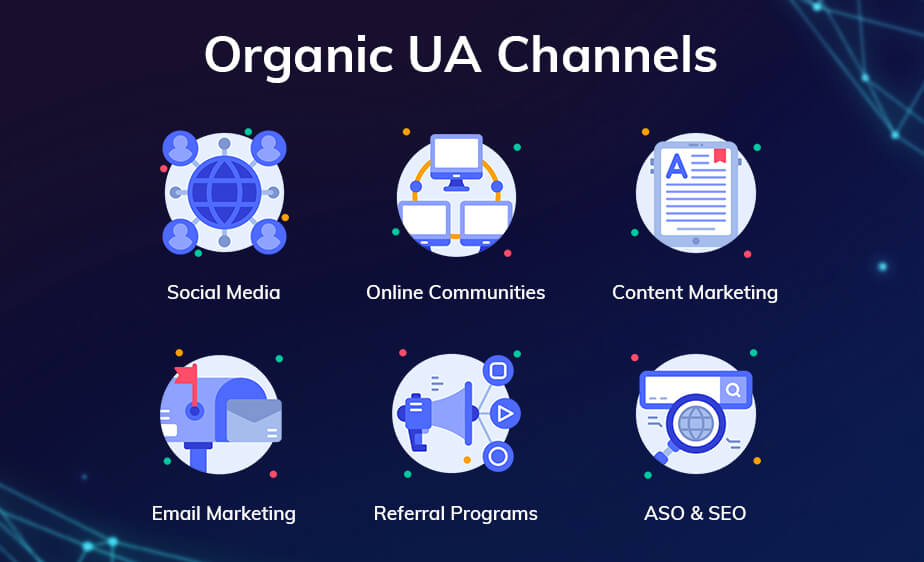
Social Media
Social media is one of the most popular mobile app user acquisition levers in use today. Platforms such as Facebook, Twitter, and Instagram allow marketers to reach large audiences with targeted content that can increase visibility for mobile apps and generate more downloads.
By having a social media presence that provides compelling organic content, users themselves will comment and reshare – raising brand awareness across the board.
Online Communities
Online communities have become an important resource for app acquisition marketing in the mobile app industry. As a marketing channel, online communities offer an environment where users can interact with one another and share their experiences with an app or title. This interaction not only provides valuable feedback to developers and marketers but also increases visibility and drives new downloads as users recommend the app to their friends.
Potential new users of an app can read the comments of existing users and, if they are part of or join the community, post their own questions and comments before making a decision about downloading or buying an app.
Content Marketing
Content marketing is an especially powerful mobile app marketing strategy that leverages content to create interest and awareness around an app. Content marketing can be used in various ways, including creating campaigns on social media channels, blogging and writing articles on relevant topics, using video to tell stories about the product, or hosting webinars and events online. Through these methods, content can be shared with potential users and, if done right, can generate downloads for the app.
When it comes to crafting effective content marketing strategies for mobile apps, it’s important to focus on creating high-quality content that will engage a broad audience. This may include things such as developing an in-app video series featuring influencers or customers talking about their experiences with the app; creating informative blog posts about features or benefits of the app; running instructional videos about how to use certain features; or hosting webinars with industry leaders.
Email Marketing
Email marketing is an effective way to reach and engage potential customers with content that will drive them to download the app. The key to successful email marketing campaigns, is understanding the needs and interests of the target audience, as well as crafting compelling content that resonates with them.
An effective email marketing strategy should involve segmenting potential customers into different groups based on their interests. This allows personalization of messages to ensure that the right content is being sent to the right people at the right time. For example, if an app focuses on fitness tracking, then sending a message about healthy eating tips might be more relevant than one about a new feature update.
Once the target audience is segmented, it’s important to design compelling email content that resonates with them and encourages them to download the app. This should include high-quality visuals and clear descriptions of the app’s value proposition, as well as incentives for downloading (such as discounts or free trials). Additionally, including a call-to-action to download the app within the email can help boost conversion rates.
By doing proper market research and understanding the needs and interests of potential customers, as well as crafting compelling content that resonates with them, email campaigns can help drive user acquisition and boost ROI.
Referral Programs
Referral programs are one of the most effective mobile app user acquisition strategies. In a referral program, existing users of the app are incentivized to invite their friends and family members to join as well. This can be done by offering rewards for successful referrals or discounts on products or services within the app.
The main benefit of referral programs is that it leverages the power of word-of-mouth marketing. This is often more powerful than traditional advertising. People often trust recommendations from people they know and trust more than they do advertisements. Often those referred by existing users will have similar interests and needs. This makes them better-qualified leads when compared to other forms of advertising.
To maximize success with referral programs, it’s important to design a system that encourages users to refer new customers. At the same time, it is important to make sure that any rewards are attractive enough to motivate them. For example, offering discounts or exclusive content can help ensure that both parties benefit from the exchange. This can lead to long-term engagement between both sides.
App Store Optimization (ASO)
App Store Optimization (ASO) is also an effective mobile app marketing lever. ASO focuses on optimizing an app’s visibility in app stores – such as Android’s Google Play, Apple’s App Store, Steam, or the Epic Games Store. This includes things like improving the app’s title, description, screenshots, and other elements of its listing in the store. By doing this, it increases the chances that users who are searching for new apps will discover it in the store.
- Learn more about app store optimization in our full-length guide: What Is App Store Optimization? And Why Does It Matter?
App Discovery Optimization
One way to optimize for App Store search results is through keyword optimization. By researching and including relevant keywords in both the title and description of an app, it can improve its ranking within the store’s search results. Additionally, these keywords should be targeted at users who are more likely to be interested in what the app has to offer. For example, if an app focuses on tracking fitness goals, then adding keywords such as “fitness” or “exercise” might help get more attention from users looking for related apps.
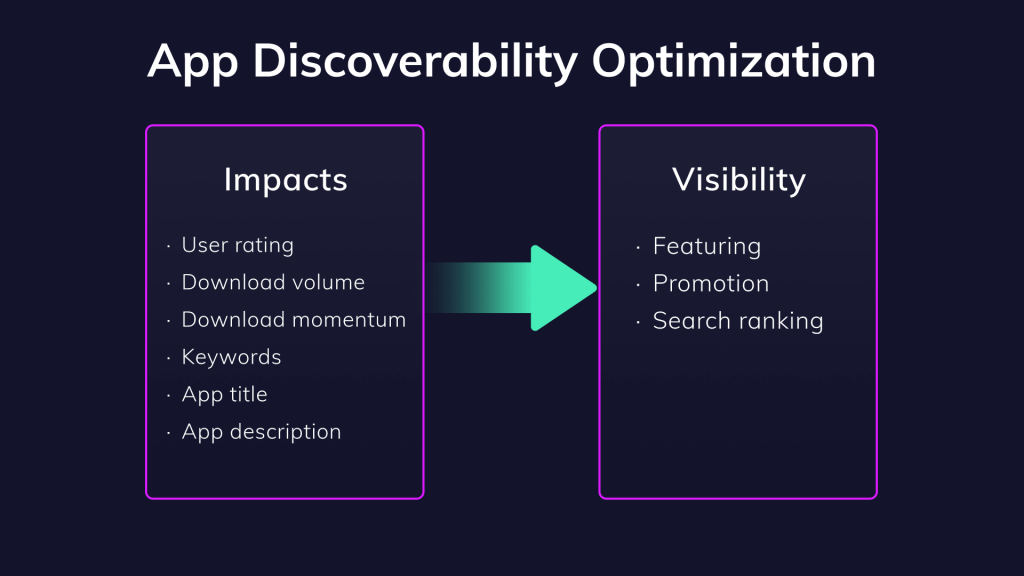
Finally, ASO also involves monitoring data related to downloads and usage of an app after it has been released into the store. This can help identify areas where performance is lacking. As a result, changes can be made accordingly — whether it’s revising descriptions or reworking visuals — which ultimately helps foster more organic downloads over time.
App Store Conversion Testing
App Store Conversion Testing is an important part of app store optimization. It is a method used to track how successful an app is at converting potential customers into actual users. Conversion testing will help developers identify areas where their app can be improved in order to increase conversion rates, as well as better understand the customer journey.
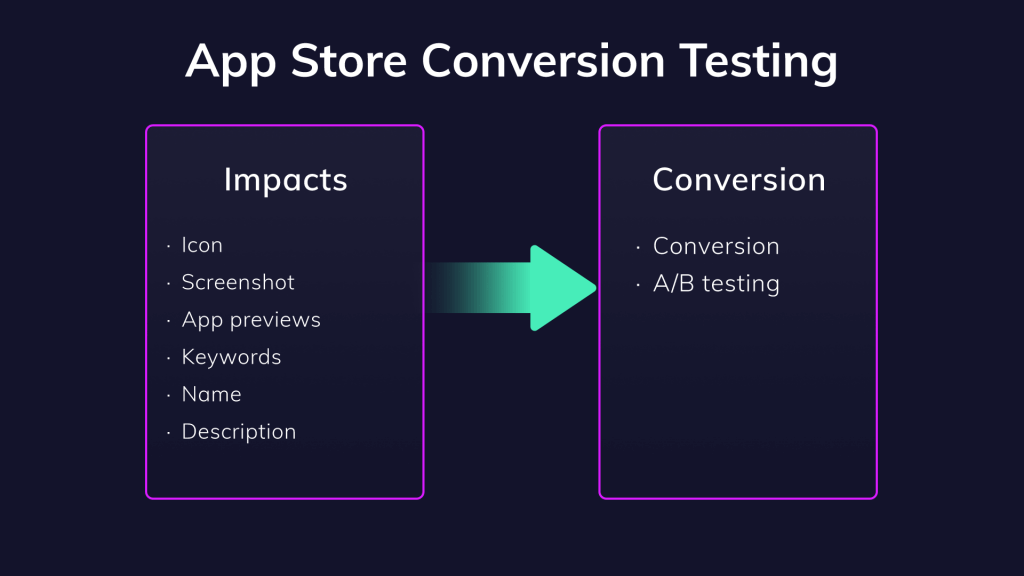
In addition to split testing, developers can also measure an app’s conversion rate through metrics such as customer lifetime value (CLV or LTV) or cost per acquisition (CPA). This information can help identify which customers are more likely to convert, allowing developers to focus their marketing efforts on those that are more likely to be successful.
Overall, App Store Optimization is a powerful tool for mobile app marketing. ASO has the ability to increase visibility within app stores and attract more qualified leads for downloads – leading to higher ROI in terms of marketing costs versus return on investment.
Search Engine Optimization (SEO)
Search engine optimization (SEO) is another critical component for the organic discovery of apps. Search engine optimization is the process of iterating on your website to make sure its pages are appearing higher in search results on Google and other search engines. Among things you should keep in mind for SEO are the style and substance of your website, the role of organic content, and keywords.
It’s important to always keep your site up to date with the latest SEO practices. Additionally, you should keep all your web pages in good working order and update them at least annually for both relevance and the latest SEO keywords. Finally, make sure to do your due diligence when selecting what keywords and search queries you are targeting.
Mobile Marketing Strategies: Retention
A savvy app marketer will work to make their app or game even stickier and increase revenue generation from existing players. With so much competition in the app store for what is essentially a finite amount of a user’s attention, user retention should always be a priority. The following four tactics are integral to a successful mobile app marketing retention strategy.
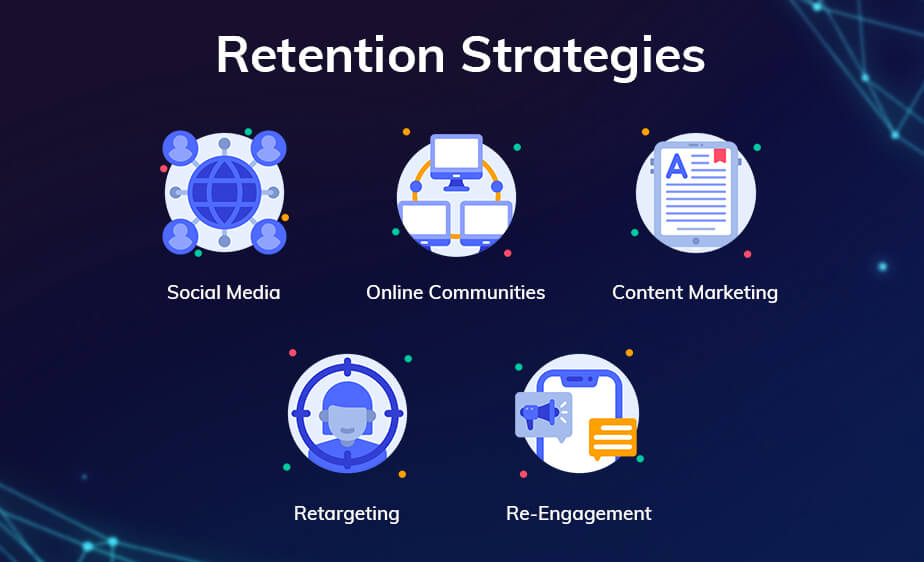
Retargeting
Retargeting is an effective mobile app marketing retention strategy that enables developers to reach out to users who have previously interacted with their applications. By using retargeting, marketers can effectively target users who may have installed an app or signed up for a service, but did not complete the desired action such as making a purchase or playing a game. By targeting users who have already installed an app or interacted with a service, it is possible to re-engage them and increase the chances of generating a conversion.
Retargeting can happen via other games, websites, or social media platforms. Advertisements or engaging creative assets can be shown to the user to remind them of the app or game and even offer them an incentive to return.
Re-Engagement
Re-engagement is an essential element of any successful mobile app marketing strategy, as it helps keep existing users or players engaged and coming back for more. It involves reaching out to users who have already interacted with the app or game in some capacity, such as those who have installed it or signed up for a service.
For example, if a user has not opened an app in some time, then a re-engagement campaign might email the user and offer them a time-locked incentive to try the app again.
In some mobile games, re-engagement tactics are built into the game itself. For example, Clash of Clans would allow for a player’s village to be attacked by other players, resulting in some of their in-game prizes and earnings to be plundered by other players while they were offline – and sending a notification to the person being plundered. This incentivized players to engage with the game on a more regular basis.
Social Media
Social media marketing is an integral part of retention. With a growing variety of platforms and channels, businesses have the opportunity to reach their target audiences in powerful ways, facilitating meaningful engagement and building relationships with users. By utilizing social media, marketers can engage with players in ways that foster loyalty and commitment – such as responding to questions or concerns, highlighting player achievements, celebrating player-made content, and more.
Online Communities
Like social media, online communities have become an increasingly important part of mobile app user retention strategies, as they provide users with a platform to discuss their experiences and engage with other users.
By offering forums, chat rooms, and other interactive features, users can connect and collaborate with each other and with app developers on issues associated with the app or game. This encourages players to stay active in the community and helps to form a strong user base.
Online communities provide users with the opportunity to share tips, ask questions, and get help from other players about the game or app. This can be a great way for developers and marketers to better understand user behavior in order to identify problems and develop effective solutions. Additionally, these communities help build brand loyalty, as users feel connected to the app or game and are more likely to remain engaged in the long term.
Online communities can also be used to promote new features and updates, incentivize players with rewards, and even showcase user-generated content. This helps bring visibility to the app or game, increases engagement levels, and ultimately leads to higher user retention.
Content Marketing
In addition to being a great lever for acquisition, content marketing can also lead to increased retention by providing regular new content for current users to enjoy and engage with as well. The important thing is to make sure content is being crafted specifically for those engaging with your app already, instead of those simply checking out your app for the first time.
Where do mobile app marketing agencies fit in?
Amid data and privacy issues and turbulent macroeconomic conditions, mobile app marketing agencies will be even more important in 2023. Most digital marketing agencies focus on just a few core components of the mobile app marketing ecosystem – and mobile app developers and publishers would do well to research all the options before committing to any mobile first marketing agency or app marketing agency.
That said, the best mobile app marketing agency is one that is primed to help app developers and publishers succeed will be those that are quick to adapt to changing conditions – such as those that incorporate AI and automation wherever they can, use the latest platform tools and forecasting methodologies to plan for maximized ROI, and expand into growing niches quickly.
Recommended mobile app marketing agencies
Here are some other great companies who offer digital marketing solutions that we’ve worked with and recommend as well!
Services and focus: User acquisition, mobile marketing strategy, creatives, data science
Clients: Atari, Disruptor Beam, Leaftail Labs, Highlights, US Cellular
Services and focus: User acquisition, creatives, growth strategies
Clients: Zynga, FitMind, LingoKids, Ada Health, Bash Gaming, GSN Games
Services and focus: User acquisition, app store optimization, creatives, ad monetization, game launches
Clients: PixelFederation, Rovio, Wooga, BoomBit, Superscale, Traplight Games
Services and focus: App store optimization, performance marketing, CRM, retention, growth consulting, subscription optimization
Clients: Kayak, Adobe, Wargaming, Spotify, Fishbrain, InfoJobs, Skyscanner, Vevo, Opera
Services and focus: Campaign strategy and management, SKAN optimization, creatives, modeling

